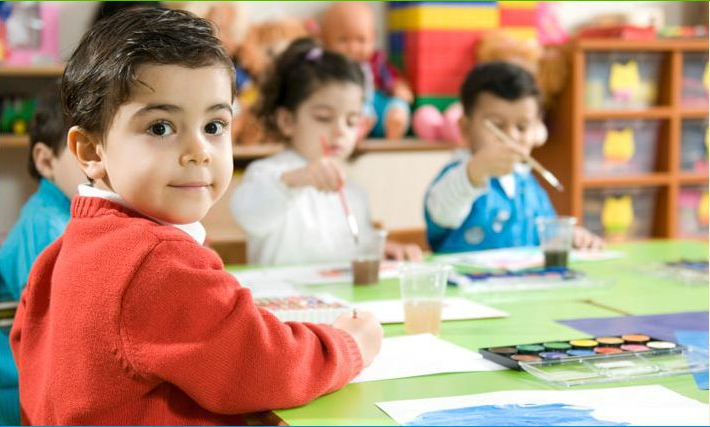Is Your Child Ready to Start Preschool?

Sending your child off to preschool is a big transition, and it can be tricky to tell whether or not he’s ready. When deciding if it’s time to send your little guy off to the classroom for the first time, there are a few important factors you should consider. Even though it’s a big decision, don’t stress yourself out too much. If your child isn’t quite ready yet, it’s okay to wait until the next semester or the next school year.
Age Requirements
Preschool is typically defined as the two years before kindergarten. Do some research, and find out if your preschool has a minimum age requirement for their students. Some schools accept children as young as two, others require children to be at least three years old by the December of the school year. If your child’s birthday falls late in the year (September 1st or later), you may want to either wait a year to enroll him in preschool, or enroll him in an extra year of preschool.
Potty Training
Many preschools require students to be potty trained (or close, at least) before enrolling. Basic self-care skills are also very important for preschoolers–hand-washing, putting on and taking off shoes, zipping up his own pants, and so on. Assess where your child stands in terms of these skills before making the decision to enroll him in preschool.
Following Directions
Preschool offers your child a chance to get used to being in a classroom without the pressure of strict rules and expectations. However, he will be expected to follow simple directions. These might include cleaning up after playtime, walking in line with his classmates, following simple rules during snack time, and performing daily class jobs. If your child struggles with following directions, start giving him easy tasks that he can do on a daily basis–bringing in the mail, for instance, or setting the plates out for dinner. Getting him used to helping out and following directions will make preschool a much happier and more productive experience.
Communication Skills
Of course, your preschooler won’t be expected to enunciate perfectly at age three, but they should be understandable (at least generally). They should also be able to understand you when you’re speaking. Typically, preschoolers are able to speak in simple, 3 to 5-word sentences, and can tell basic stories about things that happened to them. If your child is unable to do this, there may be a speech-related issue. If you think this may be the case, consult with your pediatrician. You’ll be referred to a speech therapist who specializes in working with preschool-aged children.
Transitioning
Transitioning is an important skill in preschool. Your child will most likely be expected to follow a set class schedule, with only brief breaks to move from one activity to the other. If he struggles with transitioning, you’ll want to consciously work on this at home. Giving your child some advance notice before switching gears (5 more minutes, we’re going to turn the TV off at the end of this episode, after we finish reading this book we’ll have a snack, etc.) will greatly improve his transitioning skills.
Time Away from You
Some children have never really been apart from Mom or Dad for more than a moment or two. These children tend to struggle considerably when dropped off at preschool for the first time. Others have spent time at daycare, and there isn’t a problem at all. If your child isn’t used to being away from you, start getting him used to the idea. Start with brief periods of time–a quick trip to the grocery store, or a quick jog around the neighborhood. Of course, make sure he’s not left unattended. Leave him with grandma, or a neighbor. This will help him make the transition to preschool.
Playing Well with Others
It will be very important for your child to interact well with other children when he goes off to preschool. If your child is used to being around other kids (including siblings and relatives), then there probably won’t be a problem. Regardless, it’s a good idea to get your child some practice. Set up a playdate with a neighborhood friend, go to the library and take a class, or sign up for a local playgroup. By the time he sets foot in that preschool classroom, he’ll be ready.
